Evicted mum fears being moved 170 miles away

London Councils said out-of-London placements were made as a "last resort"
- Published
A disabled mother who had fled a violent relationship says she has been evicted from her home and she may be forced to move more than 170 miles (274km) away.
Zara, who does not want to be identified, says she has been told by Waltham Forest Council that she may have to be relocated from north-east London to Stoke-on-Trent or Burnley in the north of England.
Together with her four-year-old child, she has spent the last few nights sharing a small room in a B&B paid for by her friends.
The council said the demand for housing both in the borough and across London meant councils "must now look further afield for suitable properties".
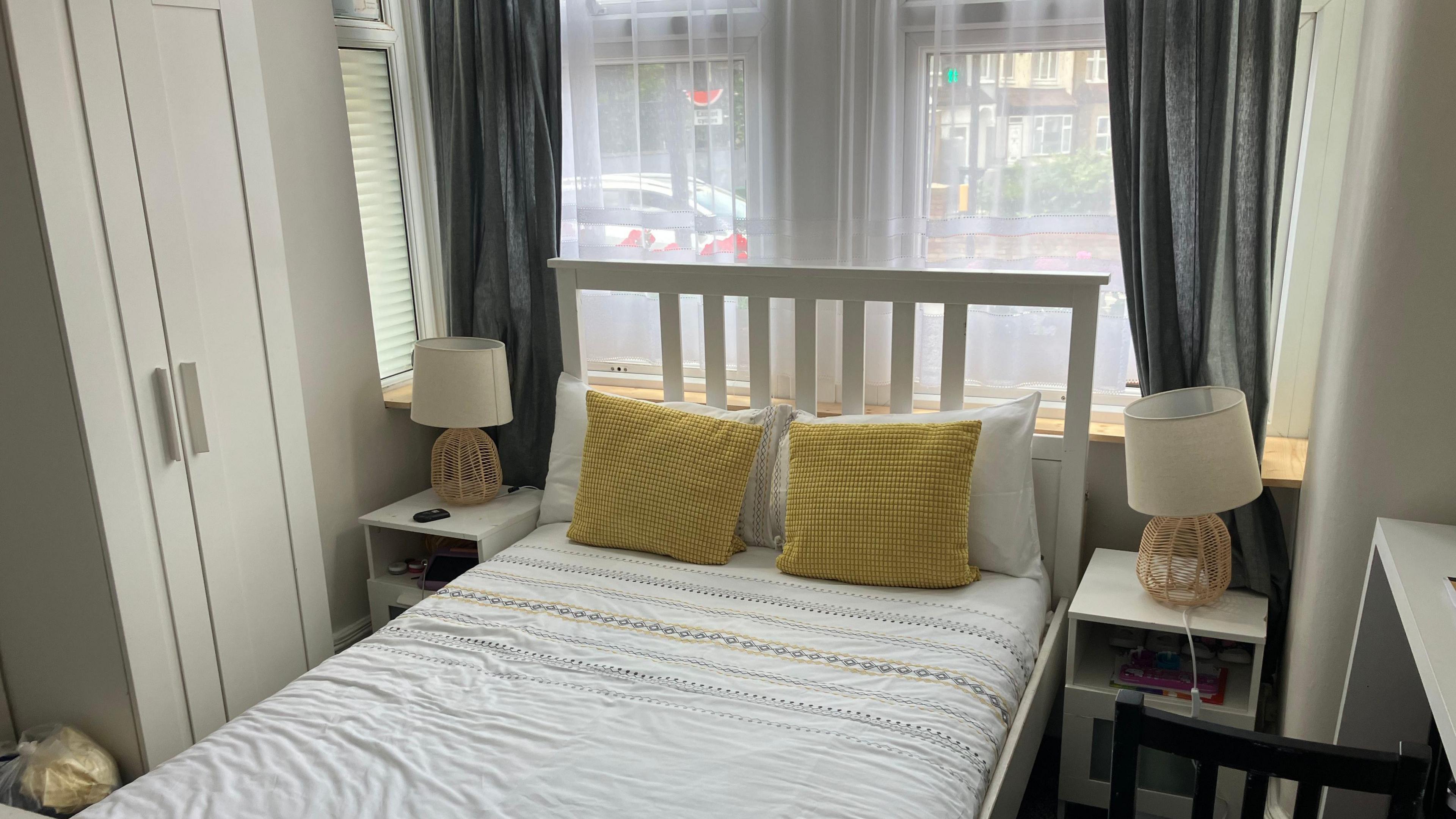
Neighbours have paid for a room which Zara shares with her child after they were left homeless
Zara had been under the care of Waltham Forest Council after she previously fled a violent relationship.
However, the council said she was no longer entitled to help after she turned down an offer to be housed in Harlow, Essex.
Zara says she was evicted from her accommodation while she was abroad visiting a sick parent.
She said she and her child had nowhere to go.
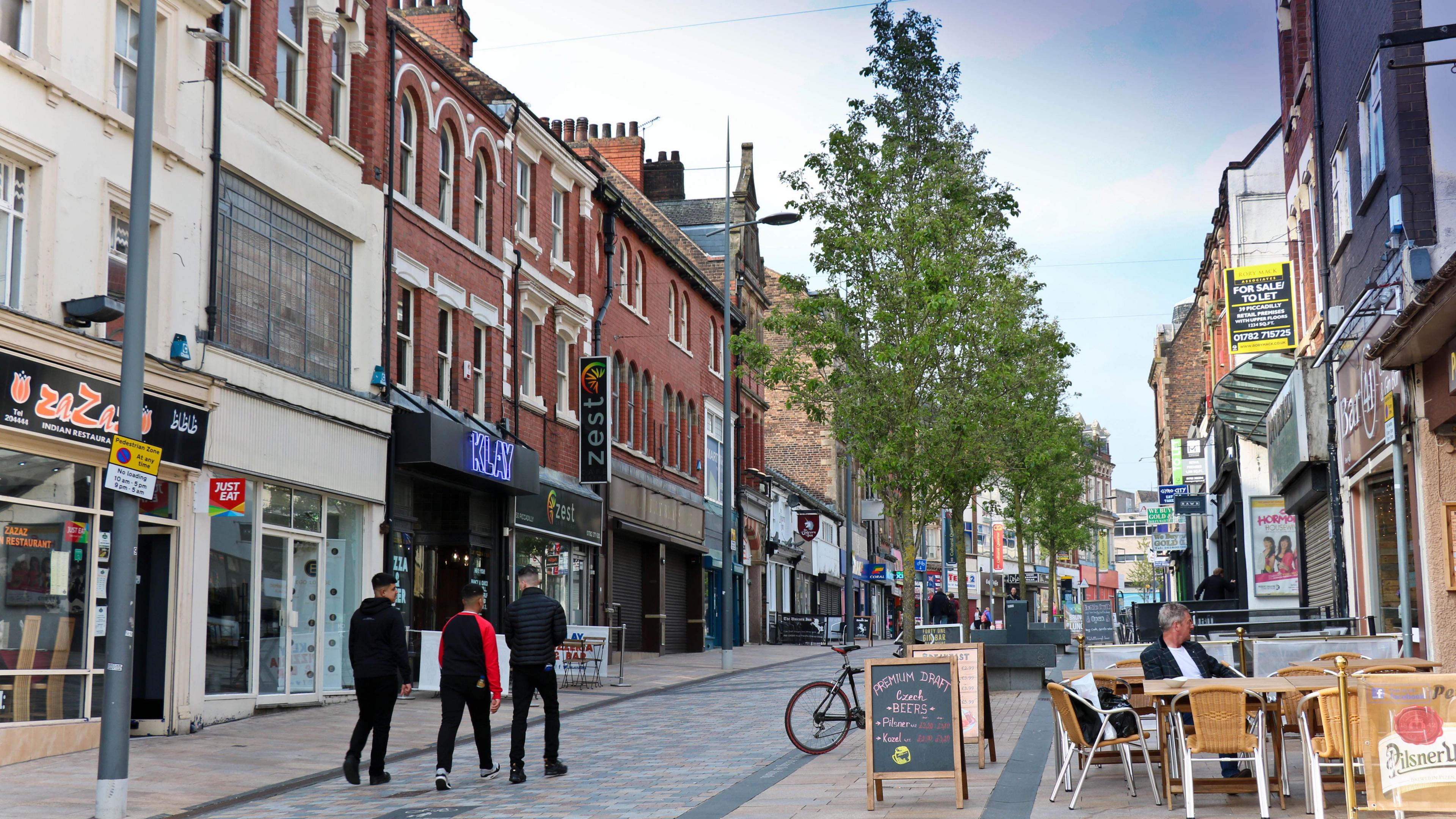
Stoke-on-Trent is more than 170 miles from Zara's London home
Zara says she turned down the offer to be housed in Essex because it would leave her isolated from those who help her with her condition and child.
"Here, my friends check in on me before I go to bed and in the morning," she says.
"I know if I’ve got a problem they’re only five minutes away they can run to me."
In an email seen by the BBC, a social worker says she and her child could be placed “anywhere within the United Kingdom” despite the family's support network being in Waltham Forest.
Zara says she has been told it is likely to be Stoke or Burnley.
"(Stoke) is four and a half hours away. There’s no-one to check me there. How can I expect to rely on random people?"
'Shocking'
Former neighbours and a community group have clubbed together to pay for Zara's accommodation and have written to the council calling on it to house her locally.
Peter O’Kane, from the group, says it is not rare to have people placed out of borough but this case is “particularly shocking, because she’s disabled, and she and the child have been traumatised and she’s medically vulnerable".
"She’s in a particularly difficult situation if she’s not near people that can suddenly step in,” he says.
Waltham Forest Council said it had close to 10,000 people on its housing waiting list with more than 1,000 households in temporary accommodation, and that the number of families turning to the authority for housing had increased 50% in the past 12 months.
It said offers of temporary and long-term accommodation were made in line with the Housing Act 1996 and the council’s Temporary Accommodation Allocation Policy and Private Rented Sector Offer Policy.
“When considering where to place homeless households, the private rented sector accommodation offered must be affordable within their household budget and we, therefore, take into account their income, employment, education or caring responsibilities, accessibility of essential medical facilities and support, and accessibility of local amenities, services and transport," a council spokesperson added.
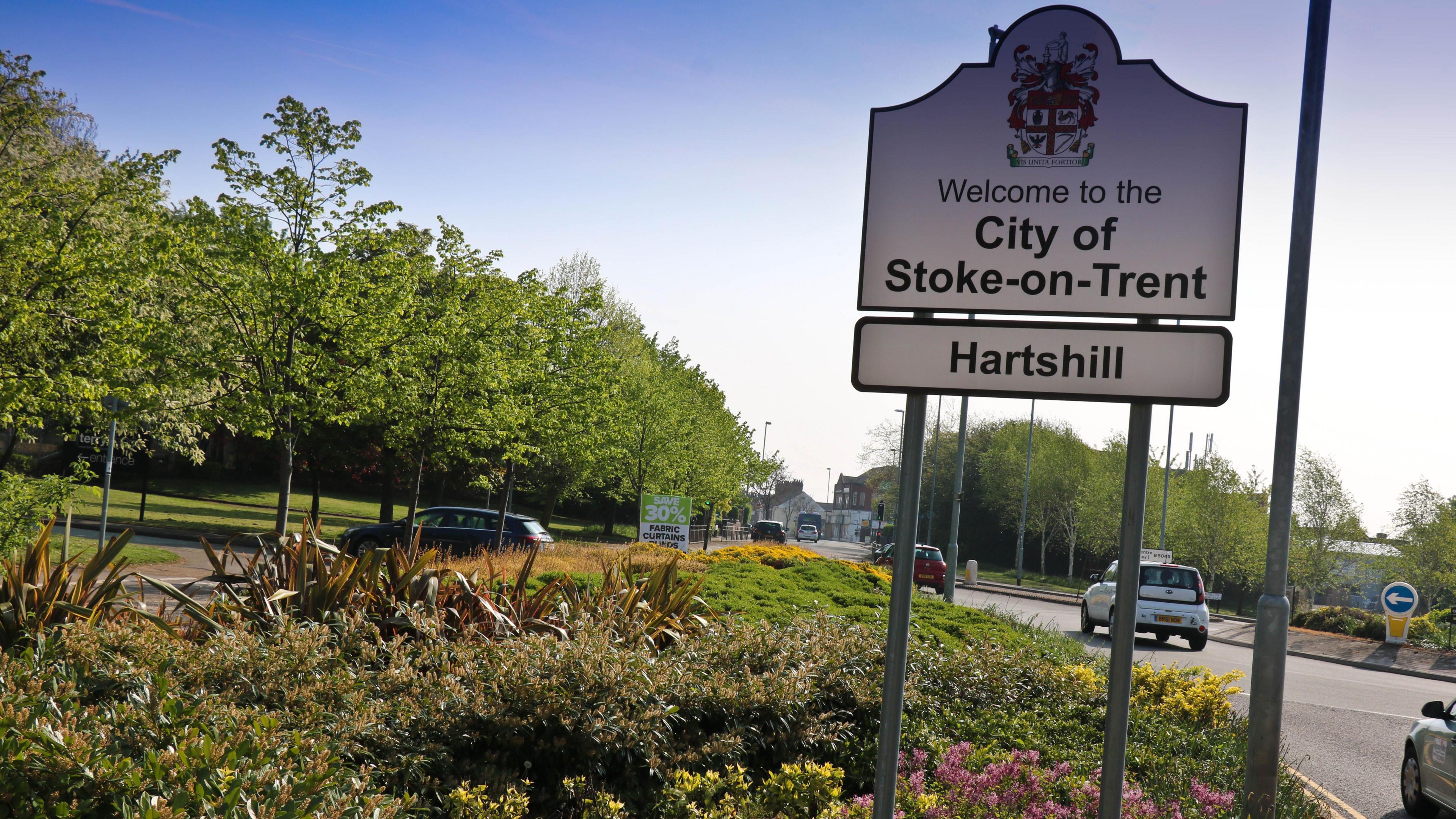
Last year, a court found in favour of a mother who the London council had tried to move to Stoke-on-Trent
This is not the first time Waltham Forest has threatened to move a family to the Staffordshire city.
Last year, a court found in favour of a mother who the London council had tried to move there, the Local Democracy Reporting Service (LDRS), external reported.
But in the same year, the court of appeal upheld a similar move of a single mother to Walsall, the LDRS, external said.
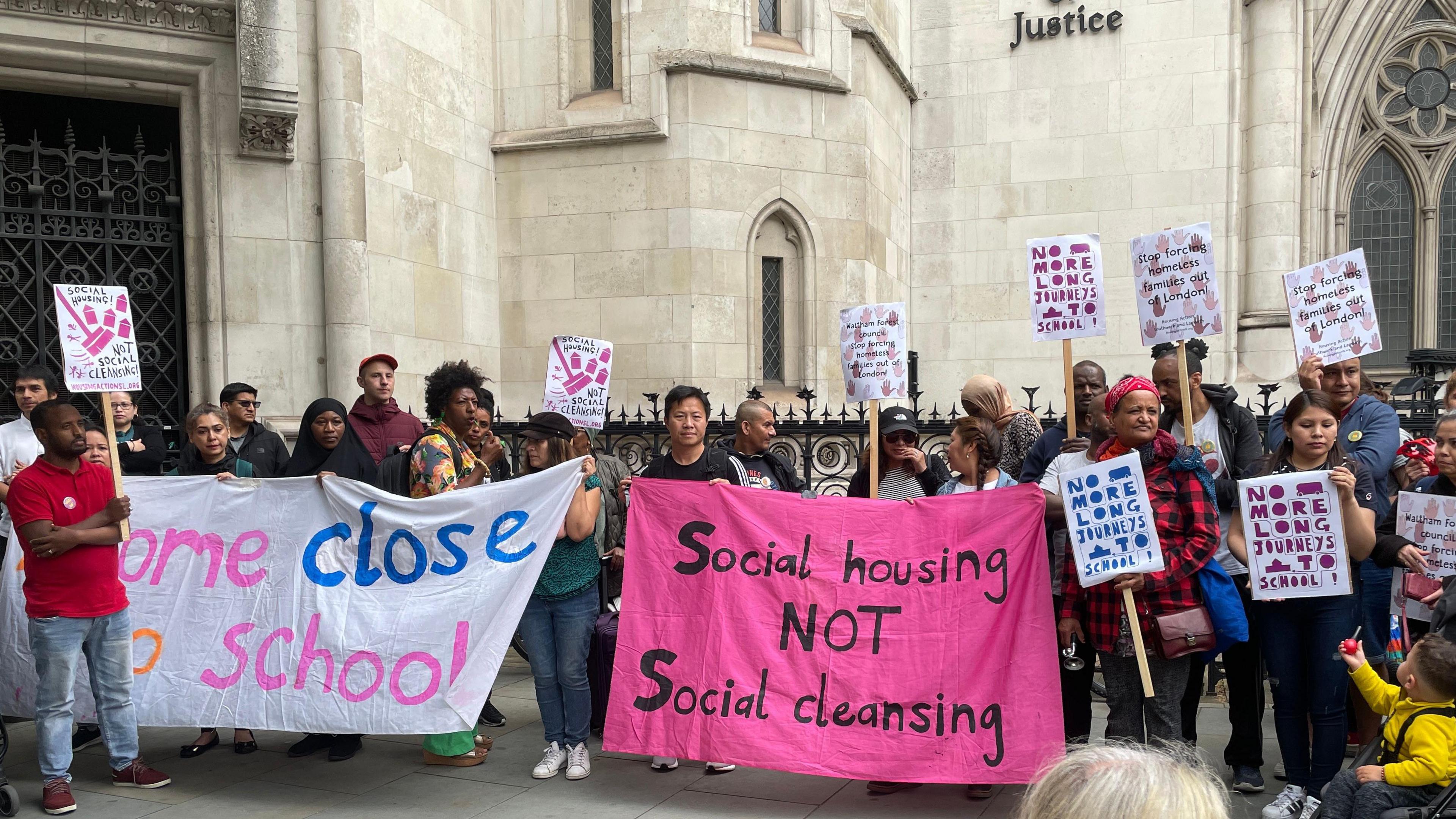
Campaigners gathered outside the Court of Appeal, which found the move of another mother to Walsall was "reasonable"
At the time, campaigners gathered to protest against councils moving families out of area - a practice that is not limited to Waltham Forest.
Research by Nottingham University found that more than 36,000 households in England were placed out of area in 2022-23.
Steve Iafrati, assistant professor of social policy at the university, says the numbers being moved away are growing.
His research shows that over the 2014-15 to 2018-19 period, London authorities placed about 8,000 households out of area per year.
The latest figures he has obtained, through Freedom of Information (FOI) requests, suggest that number is now 14,873 - but likely higher as eight boroughs did not respond.
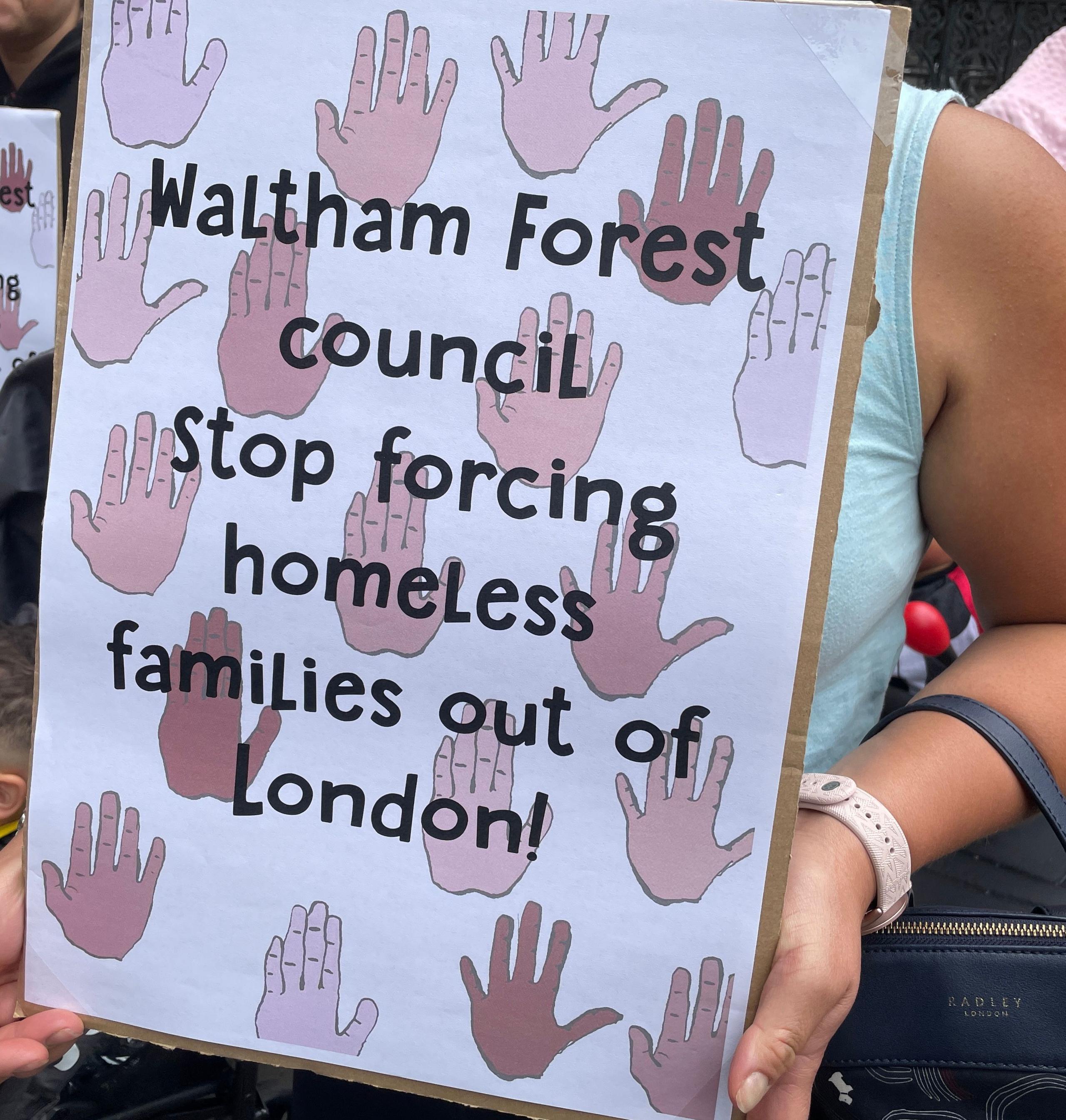
Campaigners say people should stay near their support network
All 26 boroughs that responded to the FOI confirmed they had moved households 20 miles or more.
Eleven said they had moved households at least 100 miles and Barnet, Islington, and Harrow all said they had moved households 200 miles or more.
The highest number of households moved out of area were from Westminster (1,716), Lambeth (1,560) and Bromley (1,199).

Steve Iafrati says people should not have to leave the area they live in
Dr Iafrati, who interviewed 15 households about their experiences as part of the research, says: “Suddenly they’re moved, sometimes in excess of 300 miles away.
"For some that means never seeing loved ones again.
"This isn't a choice thing. None of these people wanted to move out of area.”
Dr Iafrati believes the growing problem can be blamed on a historical lack of a national housing strategy.
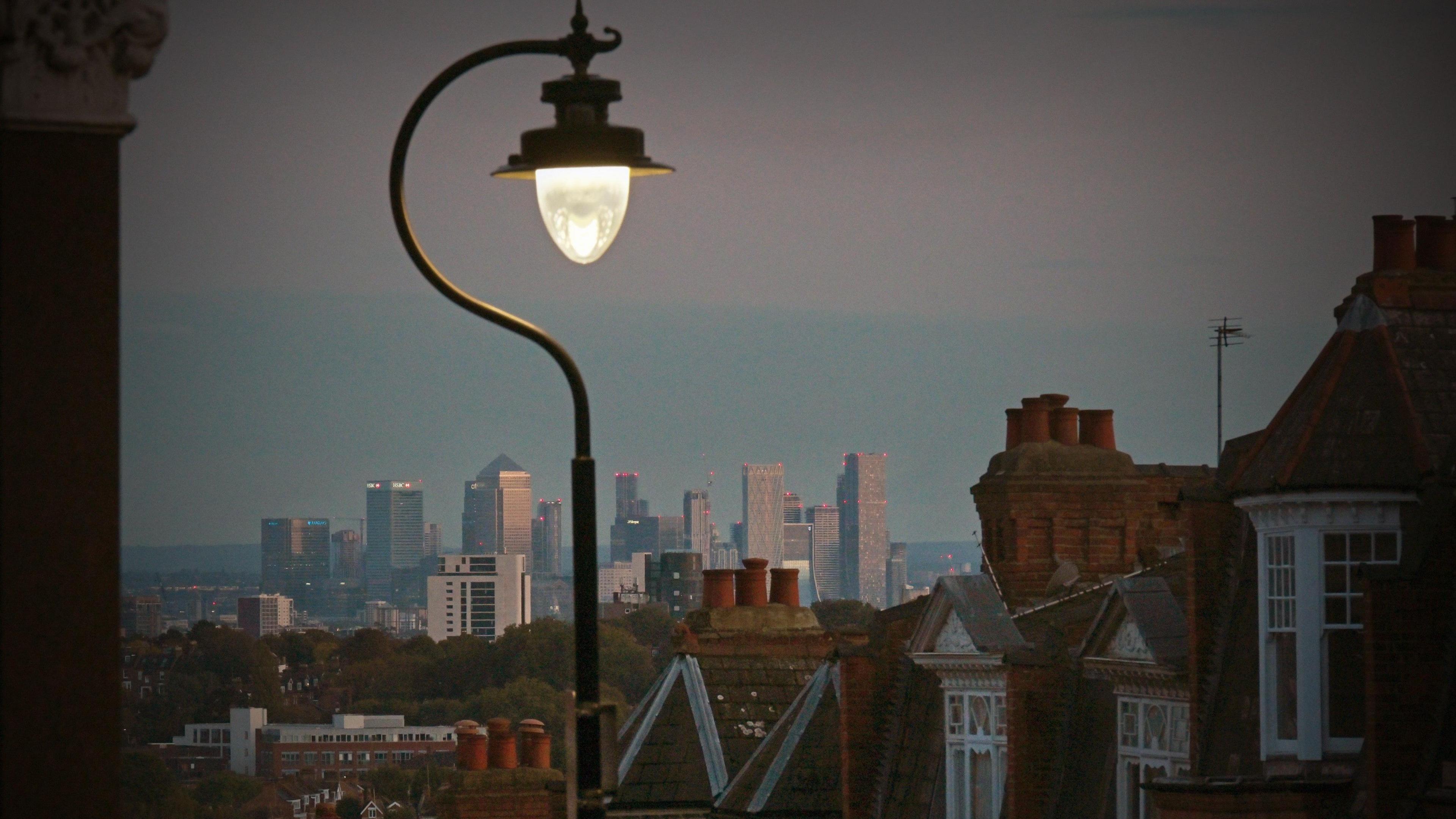
Latest figures show London authorities move 14,873 households out of area a year
A mum who knows what it is like to be moved miles away is Anyolina Diaz.
The 40-year-old was renting a house privately with her husband, mother and four children in Bromley, south-east London, and says they were evicted when the landlord needed to do repairs.
She could not rent another home privately because the costs were too high at about £2,200 per month.
When she approached her local council, it placed her and her family in Dartford, Kent, for six months and then they were moved to Ashford.
She says they had "no other option".

Anyolina Diaz says she has had to give up work as a cleaner and hairdresser as she has no network to support her and help with childcare
Her husband, who works as a delivery driver, has to commute the 45 miles (72km) back to Orpington, near Bromley, for work.
It means he gets home so late he does not get much time with his family.
Mrs Diaz says she has had to give up work as a cleaner and hairdresser as she has no network to support her and help with childcare.
She says it has also been “very difficult” for her children, who travel 35 minutes to new schools, to adapt.
"They say ‘Mum, why separate us from my brothers in the church and my friends?”’
She says getting a dentist in her new area was “impossible” so she has to spend around £30 per train ticket to take the children to appointments.
But what bothers her most is the isolation for her 72-year-old mother.
In south London, the family had close ties with the Spanish speaking community but now they have no local friends.
“I cry more for her,” she says.
What's being done to help London's housing crisis?
- Published22 April 2024
Central London exodus puts pressure on suburbs
- Published2 January 2024
How prefabs sprouted from the ashes of war
- Published6 May 2024
A spokesperson for London Councils, which represents the capital's 32 boroughs and City of London, said boroughs made "every effort to find accommodation for homeless households as close as possible to their community" and out-of-London placements were only made "as a last resort".
“London’s chronic shortage of affordable housing and high rates of homelessness mean that boroughs face extreme challenges in finding accommodation for homeless Londoners," the spokesperson added.
Listen to the best of BBC Radio London on Sounds and follow BBC London on Facebook, external, X, external and Instagram, external. Send your story ideas to hello.bbclondon@bbc.co.uk, external